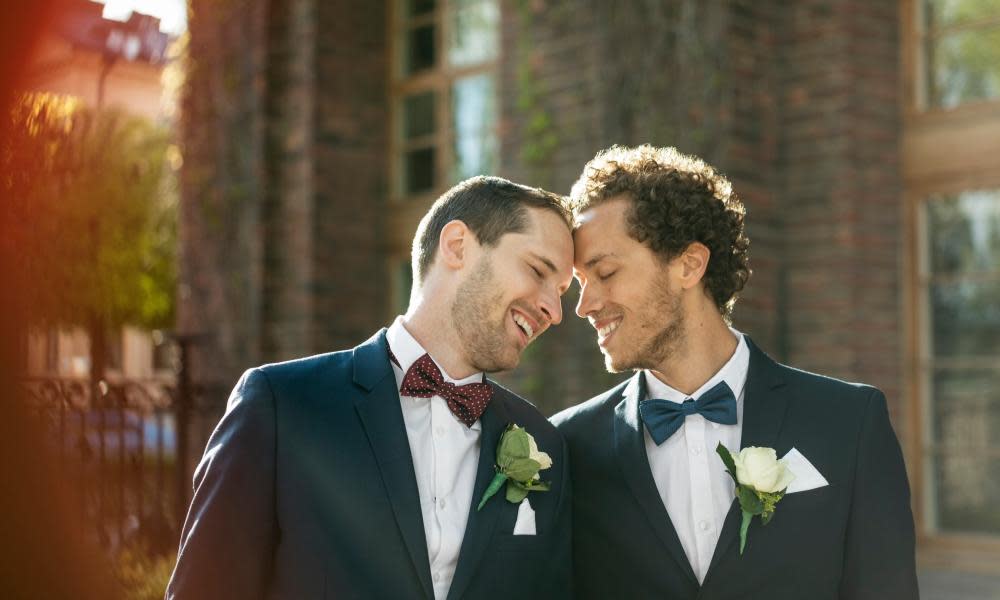Church of England’s ‘blessings’ for gay couples are not enough

Your editorial (17 November) on the Church of England’s General Synod vote to allow standalone services for gay and lesbian couples after marriage elsewhere refers to “blessings”. While the prayers to be offered are requests for blessing, they are not a proclamation of blessing as in the marriage service. The bishops and liturgists have repeatedly told us they are not, and we should believe them. The bishops demand no rings, no naming of the legal relationship that the couple have begun, and no other gestures or hints of the reality of the marriage formed are to be allowed.
Gay and lesbian couples are going to be misled about this, of course. Progressive clergy are pretending this is a victory, that the C of E has agreed to accept gay relationships and will cheerfully offer these non-blessings to gay couples – gaslighting them about the reality of what is on offer. The reality is that it is far less than promised, far short of equality, and both an insult to the couple and a lie about the church’s acceptance of their marriage.
The late Glenda Jackson voted against lowering the age of consent for gay people from 21 to 18 in 1994. She was accused of homophobia by some, but defended her vote by stating that she believed in equality and would not vote for something that preserved inequality. That had integrity – the General Synod vote had none.
Rev Andrew Foreshew-Cain (happily married to Stephen since 2014)
Chapel-en-le-Frith, Derbyshire
• The General Synod’s recent decisions bring me joy, as a Church of England priest, while also leaving me utterly frustrated that I can’t yet perform same-sex marriages in my church. As a biology graduate and a straight, married, Bible-believing Christian, I have sought to be an ally to the equality of my LGBTQ+ siblings and I rejoice in the diversity of creation.
But I come back to the same question on a regular basis: why are we (the church) quite so interested in what is in anyone’s pants? It’s none of my business what shape the contents of anyone else’s pants are. That’s for them and their consenting intimate partner to be concerned with.
I believe the church can have useful things to say about the ethics of what one does with the contents of one’s pants, but I don’t believe that anyone is defined by that shape – by me or by God.
Rev Katie Welborn van Santen
Carterton, Oxfordshire
• Re your editorial, a few crumbs thrown at gay people is not enough, and never will be. I have been a Christian all my life and have made a generous contribution to church life. But two years ago I decided to stop going as I felt angry when attending church. Why? Because I realised, after 58 years, that I was always going to be a second-class Christian. Jesus said nothing on this subject. So it’s plain prejudice and homophobia. I will only return when I am equal. So they probably have 25 years or thereabouts. After that, maybe I will see them in heaven.
Darren Hackett
Matlock, Derbyshire
• Your editorial ignores the harm that the Church of England’s leadership wreaked during the equal marriage debate a decade ago. After 20 years working as a church musician, I left the C of E in 2013 in protest at the priority that it placed on a false concept of church unity, at the expense of LGBTQ+ people’s lives. My husband and I did marry, but not in church – despite decades of service. I, and countless others, will not return to church life.
Dr Andrew Wilshere
Leicester
• Do you have a photograph you’d like to share with Guardian readers? If so, please click here to upload it. A selection will be published in our Readers’ best photographs galleries and on our Saturday letters spread in the print edition.

 Yahoo News
Yahoo News 
